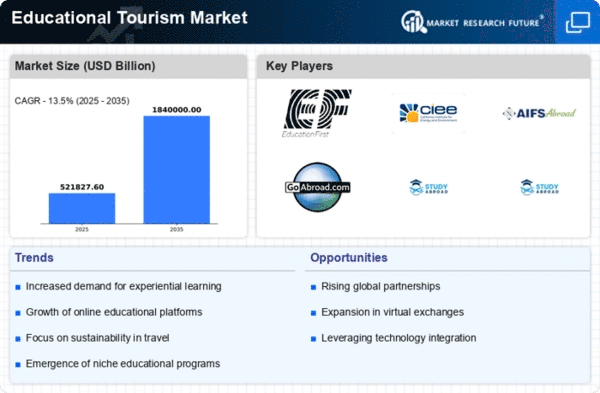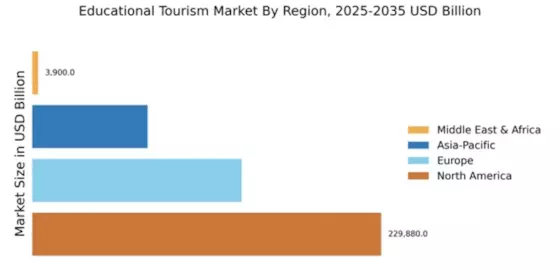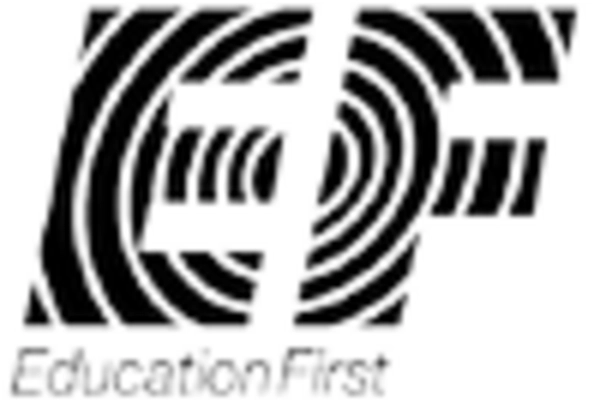Market Growth Projections
The Global Educational Tourism Market Industry is poised for substantial growth in the coming years. With a market value of 463.4 USD Billion in 2024, projections indicate a remarkable increase to 1688.8 USD Billion by 2035. This growth trajectory suggests a compound annual growth rate (CAGR) of 12.47% from 2025 to 2035. Such figures underscore the increasing importance of educational tourism as a sector that not only enhances learning experiences but also contributes to economic development. The anticipated growth reflects a broader recognition of the value of education in a globalized world, where travel and learning are increasingly intertwined.
Government Support and Policies
Government support and favorable policies significantly influence the Global Educational Tourism Market Industry. Many countries recognize the economic benefits of educational tourism and actively promote it through funding, scholarships, and partnerships with educational institutions. For example, various governments offer incentives for international students, which enhances the attractiveness of their educational programs. This support is crucial in driving market growth, as it encourages more students to pursue educational opportunities abroad. As the market is projected to grow to 1688.8 USD Billion by 2035, continued government involvement will likely play a key role in shaping the future of educational tourism.
Increased Focus on Lifelong Learning
The Global Educational Tourism Market Industry benefits from an increasing focus on lifelong learning. As individuals seek to enhance their skills and knowledge throughout their lives, educational tourism emerges as a viable option for professional development. Workshops, seminars, and short courses offered in various global locations cater to this demographic. The trend towards continuous education is likely to drive market growth, as more adults pursue opportunities to learn in diverse environments. With a projected CAGR of 12.47% for 2025-2035, the emphasis on lifelong learning will likely contribute significantly to the expansion of the educational tourism sector.
Cultural Exchange and Global Awareness
Cultural exchange initiatives contribute to the expansion of the Global Educational Tourism Market Industry. As globalization increases, educational institutions emphasize the importance of cultural awareness and understanding. Programs that facilitate cultural exchanges allow students to immerse themselves in different societies, fostering global citizenship. This trend is particularly evident in language immersion programs and international internships, which enhance students' cultural competencies. The growing recognition of the value of cultural exchange in education suggests that this driver will continue to shape the market, potentially leading to sustained growth as more institutions prioritize global awareness in their curricula.
Rising Demand for Experiential Learning
The Global Educational Tourism Market Industry experiences a notable increase in demand for experiential learning opportunities. Students and educators alike seek immersive experiences that extend beyond traditional classroom settings. This trend is evidenced by the growing popularity of study abroad programs, cultural exchanges, and hands-on workshops. In 2024, the market is valued at approximately 463.4 USD Billion, reflecting a shift towards educational experiences that foster practical skills and cultural understanding. As educational institutions recognize the value of experiential learning, they are increasingly integrating travel into their curricula, thereby enhancing the appeal of educational tourism globally.
Technological Advancements in Education
Technological advancements play a pivotal role in shaping the Global Educational Tourism Market Industry. The integration of digital tools and platforms facilitates remote learning and virtual exchanges, making educational travel more accessible. For instance, online platforms enable students to participate in international courses and workshops without the need for physical travel. This shift not only broadens the reach of educational institutions but also enhances the learning experience. As technology continues to evolve, it is likely to create new opportunities for educational tourism, potentially increasing market growth as more students seek innovative learning experiences.


















